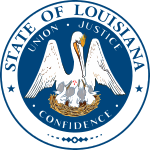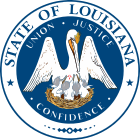
Mary Loretta Landrieu is an American entrepreneur and politician who served as a United States senator from Louisiana from 1997 to 2015. A member of the Democratic Party, Landrieu served as the Louisiana State Treasurer from 1988 to 1996, and in the Louisiana House of Representatives from 1980 to 1988.

John Berlinger Breaux is an American lobbyist, attorney, and retired politician who was a member of the United States Senate from Louisiana from 1987 until 2005. He was also a member of the U.S. House of Representatives from 1972 to 1987. He was considered one of the more conservative national legislators from the Democratic Party. Breaux was a member of the New Democrat Coalition.

David Conner Treen Sr. was an American politician and attorney from Louisiana. A member of the Republican Party, Treen served as U.S. Representative for Louisiana's 3rd congressional district from 1973 to 1980 and the 51st governor of Louisiana from 1980 to 1984. Treen was the first Republican elected to either office since Reconstruction.

James Alison Hayes is an American politician and lawyer. He is a Republican from Louisiana.

The politics of Louisiana involve political parties, laws and the state constitution, and the many other groups that influence the governance of the state. The state was a one-party Deep South state dominated by the Democratic Party from the end of Reconstruction to the 1960s, forming the backbone of the "Solid South." This was due to the near-total disenfranchisement of the state's large African-American population during this time, who mostly voted Republican. The Civil Rights era turned the state into a competitive one on the federal level, as it voted for the nationwide winner in every election between 1972 and 2004. It remained Democratic on the state and local level until the turn of the 21st century, allowing Republicans to win control of the state legislature and every statewide office in 2011. Republicans won a United States Senate seat for Louisiana in the election of 2004, for the first time since 1876. Republicans captured both seats in the election of 2014 for the first time since 1872. In the election of 2008, the state voted for a losing presidential candidate for the first time since 1968. Democrats won less than 40% of the presidential popular vote in the state in the elections of 2016 and 2020.

The 1995 Louisiana gubernatorial election was held on November 18, 1995, to elect the governor of Louisiana.
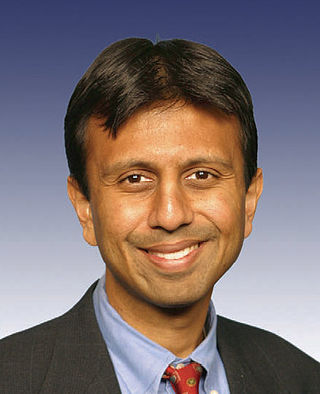
The 2007 Louisiana gubernatorial election was held on October 20. The filing deadline for candidates was September 6. On the day of the election, all 12 candidates competed in an open jungle primary. Bobby Jindal won the election with 54%. This was the first time since 1968 in which the winner of a Louisiana gubernatorial election was of the same party as the incumbent president.
Karen Carter Peterson is an American lawyer and former politician who served as a member of the Louisiana State House from 1999 to 2010, then as the state senator from the 5th district until her resignation in 2022. She also served as the chair of the Louisiana Democratic Party from 2012 to 2020, becoming the first female chair of the state party. In 2008, Peterson became as Democratic National Committeewoman for Louisiana. In 2017, Peterson was elected vice chair of civic engagement and voter participation for the Democratic National Committee.
The Louisiana Democratic Party is the affiliate of the Democratic Party in the state of Louisiana.

The Republican Party of Louisiana(LAGOP) (French: Parti républicain de Louisiane, Spanish: Partido Republicano de Luisiana) is the affiliate of the Republican Party in the U.S. state of Louisiana. Its chair is Louis Gurvich, who was elected in 2018. It is currently the dominant party in the state, controlling all but one of Louisiana's six U.S. House seats, both U.S. Senate seats, and both houses of the state legislature. However Republicans recaptured the governorship in the 2023 Louisiana gubernatorial election with Republican Jeff Landry outright winning with 51.56% of the vote and avoiding a runoff.

The 2004 United States Senate election in Louisiana was held on November 2, 2004. Incumbent Democratic Senator John Breaux decided to retire after three terms in office. Republican Representative David Vitter won the open seat with 51% of the primary vote and avoided a runoff, which would be scheduled on December 4, becoming the first Louisiana Republican elected to the U.S. Senate since 1876, and the first ever to be popularly elected. This election was the first time ever that a Republican won a full term to this Senate seat in Louisiana.

William Harold Nungesser is an American politician serving as the 54th lieutenant governor of Louisiana since 2016. A member of the Republican Party, Nungesser is also the former president of the Plaquemines Parish Commission, having been re-elected to a second four-year term in the 2010 general election in which he topped two opponents with more than 71 percent of the vote. His second term as parish president began on January 1, 2011, and ended four years later.

The 2014 United States Senate election in Louisiana was held on November 4, 2014, to elect a member of the United States Senate to represent the State of Louisiana.

The 2015 Louisiana gubernatorial election was held on November 21, 2015, to elect the governor of Louisiana. Incumbent Republican Governor Bobby Jindal was not eligible to run for re-election to a third term because of term limits established by the Louisiana Constitution.

United States gubernatorial elections were held in three states in 2015 as part of the 2015 United States elections. In Kentucky and Mississippi, the elections were held on November 3, and in Louisiana, as no candidate received a majority of votes at the primary election on October 24, 2015, a runoff election was held on November 21. The last regular gubernatorial elections for all three states were in 2011. Democrats picked up the open seat of term-limited Republican Bobby Jindal in Louisiana, while Republicans re-elected incumbent Phil Bryant in Mississippi and picked up the seat of term-limited Democrat Steve Beshear in Kentucky.

Elbert Lee Guillory is a former member of the Louisiana State Senate. An American Republican, he represented District 24, including his native Opelousas, and several rural precincts, from May 2, 2009, when he won a special election, until January 11, 2016, when his full term to which he was elected in 2011 ended.

The 2016 United States Senate election in Louisiana took place on November 8, 2016, to elect a member of the United States Senate to represent the State of Louisiana, concurrently with the 2016 U.S. presidential election, as well as other elections to the United States Senate in other states and elections to the United States House of Representatives and various state and local elections.
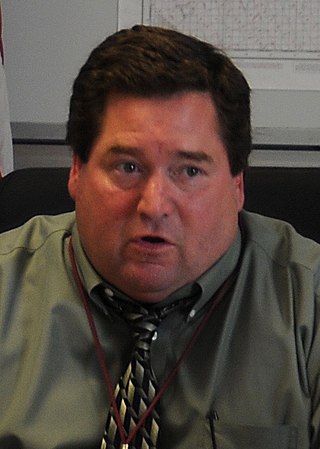
The 2015 Louisiana lieutenant gubernatorial election took place on October 24, 2015, to elect the Lieutenant Governor of Louisiana, with a runoff election held on November 21, 2015. Incumbent Republican Lieutenant Governor Jay Dardenne did not run for re-election to a second full term in office. He instead ran for governor. Billy Nungesser won the election defeating Kip Holden, despite a Democratic victory in the gubernatorial election, in which John Bel Edwards defeated David Vitter by a similar margin.
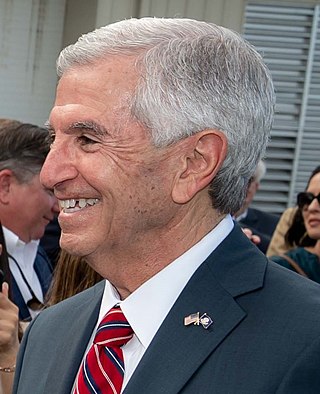
The 2019 Louisiana gubernatorial election was held to elect the governor of Louisiana. Incumbent Democratic Governor John Bel Edwards won re-election to a second term, defeating Republican businessman Eddie Rispone. Edwards became the first Democratic Governor of Louisiana to win re-election to a second consecutive term in 44 years since Edwin Edwards in 1975. It was the closest Louisiana gubernatorial election since 1979.
